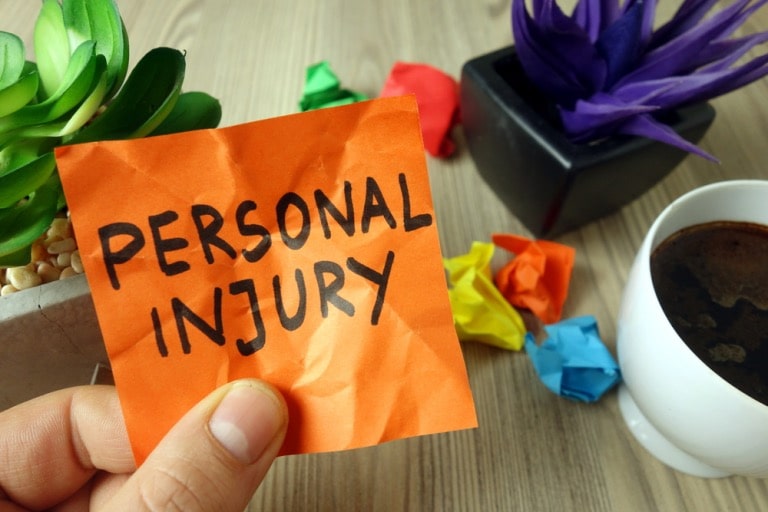The Do’s and Don’ts of Dealing with Personal Injury

When life throws unexpected challenges your way, dealing with a personal injury can be one of the most daunting. Whether it’s a car accident, a slip, and fall, or any other unfortunate event leading to an injury, knowing the right steps to take can make all the difference.
The purpose of this blog post is to guide you through the essential do’s and don’ts of handling personal injuries, ensuring you’re well-equipped to protect your rights and secure the compensation you deserve.
Seeking Immediate Medical Attention
The first step after sustaining a personal injury is to seek medical attention promptly. It’s crucial not only for your health but also for the documentation needed for your claim. Delaying medical treatment can weaken your case by making it appear as though your injuries were not severe.
Ignoring small injuries can lead to complications. Even if you feel fine, internal injuries may not be immediately apparent. Always err on the side of caution and get a thorough medical examination.
Gathering Evidence at the Scene
When possible, gather evidence from the scene of the accident. This includes taking photographs of the location, any visible injuries, and any contributing factors like a wet floor or a damaged road.
Talk to witnesses and collect their contact information. Their testimonials can provide an unbiased account of the incident, which can be invaluable.
Additionally, write down your own account of what happened as soon as possible. Memories fade, and having a detailed record of the event will help you recall specific details later.
Avoiding Admissions of Guilt
In the aftermath of an accident, emotions run high. It’s important to remain calm and avoid making any statements that could be interpreted as an admission of guilt, even if you think you might be at fault.
Simple phrases like “I’m sorry” can be misconstrued. Stick to factual statements when discussing the incident with others, especially law enforcement or insurance adjusters.
Remember, determining fault is a complex process best left to the professionals. Your priority should be on recovery and gathering information.
Understanding the Statute of Limitations
Every state has a statute of limitations for filing personal injury claims. This is the time frame within which you must take legal action. Failing to file a claim within this period typically results in losing your right to seek compensation.
Research the statute of limitations in your state. In many cases, it’s two years from the date of the injury, but this can vary.
Consulting with an attorney early on can help ensure you meet all necessary deadlines and don’t inadvertently forfeit your rights.
Not Settling Too Quickly
Insurance companies often push for quick settlements. While it might be tempting to accept an offer and move on, it’s essential to be sure the settlement covers all your expenses and future needs.
Evaluate the full extent of your injuries. Some injuries may have long-term effects that aren’t immediately apparent.
Consult with a legal professional before accepting any settlement offers. They can provide guidance on whether the offer is fair and adequate.
Make Sure To Get Legally Protected
Having legal protection is critical when dealing with personal injury claims. Finding personal injury attorneys who will aggressively and tirelessly represent the seriously injured and their families – fair and just compensation are the only acceptable outcomes, is essential, as seen on the www.ltlaw.com website.
A skilled attorney can help you navigate the complexities of personal injury law and advocate on your behalf. Legal representation can significantly increase your chances of a successful outcome. Attorneys have the expertise to handle negotiations and can take your case to court if necessary.
Additionally, most personal injury attorneys work on a contingency fee basis. This means they only get paid if you win your case, making legal representation accessible to everyone.
Keeping Detailed Records
Document every detail related to your injury. This includes medical treatments, communication with insurance companies, time off work, and any other expenses incurred due to the injury.
Organize your records chronologically. Having a well-documented file can streamline the legal process and ensure nothing is overlooked.
Regularly update your records as new information arises. This ongoing documentation will be invaluable for your legal team.
Understanding Your Insurance Policy
Familiarize yourself with the details of your insurance policy. Knowing what coverage you have can help you understand what compensation you’re entitled to.
Contact your insurance company to report the incident. Provide them with all necessary documentation and follow up regularly to check the status of your claim.
Be aware of any clauses or exclusions in your policy. Some injuries or situations may not be covered, and it’s better to know this upfront.
Final Words
Dealing with a personal injury can be overwhelming, but taking the right steps can make a significant difference in the outcome of your case. By following these do’s and don’ts, you’ll be better prepared to protect your rights and secure the compensation you deserve.





